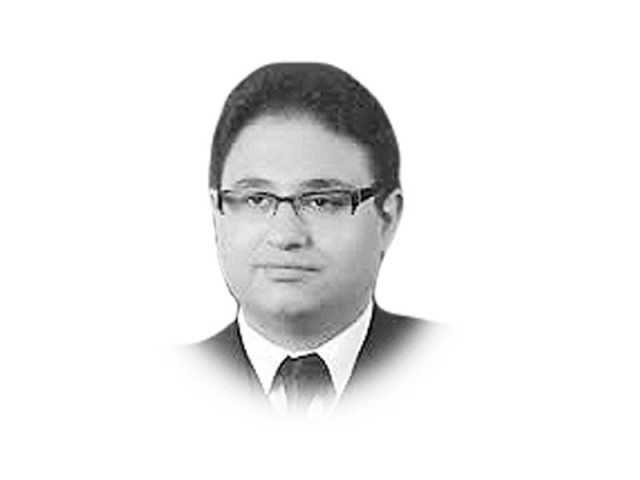MQM resignations — are they reversible?
The ball is already out of the speaker’s court and, as of Aug 12, 2015, the MQM has already lost its berth in NA

The writer is an advocate of the Supreme Court of Pakistan and tweets
@BarristerMShah
This is not the first time MQM legislators have tendered resignations from parliament. In 1993, when MPAs belonging to the MQM flooded the office of the speaker with their resignations as a mark of protest and to exert pressure against the vilification campaign of their party leader, the issue reached the Sindh High Court where, on a petition titled Muhammad Naeem Akhtar & 2 Others vs The Speaker, Sindh Provincial Assembly & Others (1992 CLC 2043), filed by three MPAs, challenged the speaker’s decision of accepting their resignations on the ground that these were submitted under duress.
The high court, while dealing with the issue in light of Article 64 of the Constitution, elucidated that vacation of the seat of an MNA is contingent upon the happening of two events; first, a letter written by the resigning member in his own handwriting and second, the receipt of the same in the hands of the speaker. Upon the occurrence of these two events, his seat shall automatically become vacant. The Constitution does not require ‘acceptance’ of a resignation received by the speaker for that resignation to become effective and the seat becoming vacant. However, it does not follow that the speaker has absolutely no role to play in such a scenario. The Sindh High Court enunciated that in case the speaker has any doubt about the genuineness or voluntary nature of the resignation received by him, or if he receives information from the member concerned that the resignation is not genuine or is not voluntary, he is then required to hold an inquiry to satisfy himself qua the genuineness of the resignation and, if in such an inquiry he finds that the resignation is not genuine or voluntary, he will record such findings, in which event the resignation shall become ineffective.
In case the speaker has no reason to doubt the genuineness of the resignation and does not receive any intimation either before or within reasonable time of receipt from the member concerned that the resignation is not genuine or voluntary, there would be no requirement for the speaker to hold any inquiry and the resignation would become effective. As per the principles laid down by the Sindh High Court, the law does not require the speaker to hold any inquiry.
The speaker’s power to hold an inquiry on genuineness of resignations has also been discussed by the Supreme Court in a case titled Mirza Tahir Beg vs Syed Kausar Ali Shah & Others (PLD 1976 SC 504). The Court, while interpreting Article 64 of the Constitution, inferred an implied duty on the speaker to make proper enquiry, if there is any reason for doubt qua genuineness.
Finally, in Mian Muhammad Nawaz Sharif Case (PLD 1993 SC 473), the Supreme Court enumerated circumstances, where resignation of an MNA would automatically become effective immediately upon submission, contrary to those where an inquiry would be imperative. The Court stipulated that where the letter of resignation is delivered to the speaker personally, the member should express that his resignation is voluntary and genuine. However, if the letter of resignation is delivered by any other means, the speaker is bound to inquire about its genuineness.
In the given premise, all endeavours to persuade the MQM to withdraw its resignations seem meaningless since the ball is already out of the speaker’s court as the party’s seats in the National Assembly already stand vacant. Any attempt on the part of the speaker to hold an inquiry or a public statement by the MQM resiling from its resignations at this belated stage would be an affront to the notion of constitutionalism and the rule of law. The speaker should now live up to his apolitical role of being custodian of the House and discharge his constitutional function without being overwhelmed by the prime minister or the ruling parliamentary party. After all, constitutionalism ought not to be sacrificed at the altar of political exigencies.
Published in The Express Tribune, August 21st, 2015.
Like Opinion & Editorial on Facebook, follow @ETOpEd on Twitter to receive all updates on all our daily pieces.















COMMENTS
Comments are moderated and generally will be posted if they are on-topic and not abusive.
For more information, please see our Comments FAQ